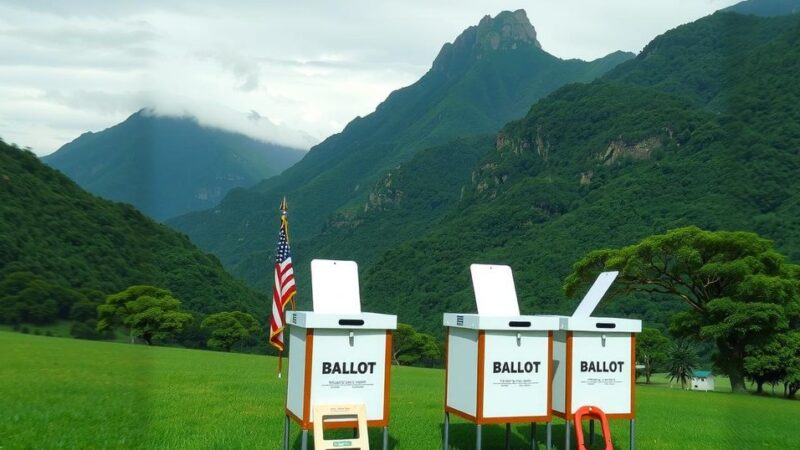Colombia’s Catatumbo region has seen a significant surge in violence, with the death toll rising to 60 due to clashes between the ELN and FARC. The violence highlights risks for civilians, increased kidnappings, and humanitarian crises. President Gustavo Petro condemned the violence as war crimes, while the military has deployed additional troops to restore order.
Violence attributed to a rebel group in Colombia’s Catatumbo region has resulted in a death toll of 60 individuals, as reported by the country’s human rights office. This violence, stemming from years of rivalry over control of the cocaine trade, involved the National Liberation Army (ELN) and the Revolutionary Armed Forces of Colombia (FARC), who had previously engaged in peace negotiations. The recent attacks disrupted a precarious truce between these factions, prompting significant concerns regarding civilian safety and human rights.
The Ombudsman’s Office indicated that many, including local leaders and their families, were at considerable risk of abduction or assassination at the hands of the ELN. Reports indicated that 20 individuals were recently kidnapped, half of whom were women. Alarmingly, the recent violence took the lives of seven individuals who had signed peace treaties and Carmelo Guerrero, leader of the Association for Peasant Unity in Catatumbo (Asuncat).
Local advocacy groups have voiced their concerns, highlighting that food shortages are emerging as a direct consequence of the violence, severely impacting the community. The Ombudsman noted that thousands may have been displaced and vulnerable populations such as the elderly, children, and pregnant women are particularly suffering. Reports from the Association of Mothers of Catatumbo for Peace illustrated the widespread devastation, stating that “Catatumbo is once again stained with blood.”
The Ombudsman’s Office laid the blame on the ELN, which had been engaged in peace discussions with the government until these talks were suspended on account of the ongoing violence. President Gustavo Petro condemned the ELN’s actions as “war crimes” and criticized their lack of commitment to peace. In response, the ELN accused the FARC of instigating the violence by attacking civilians, although the FARC has yet to publicly address this claim.
As a measure to restore stability, the Colombian army has announced the deployment of additional troops to the Catatumbo region. This development underscores the urgency of addressing the humanitarian crisis exacerbated by the recent surge in violent conflict among armed groups.
The Catatumbo region of Colombia has long been a battleground for rival drug trafficking factions, primarily due to its geographical proximity to the Venezuelan border. The National Liberation Army (ELN) and the Revolutionary Armed Forces of Colombia (FARC) have historically fought for control over lucrative cocaine routes. The resurgence of violence disrupts fragile peace efforts and places numerous civilians at increased risk of harm, including kidnappings and fatalities. The situation highlights ongoing challenges faced by the Colombian government in its attempts to foster peace and combat organized crime.
The recent surge in violence in Catatumbo has claimed numerous lives, disrupted peace negotiations, and exacerbated humanitarian crises within local communities. Despite ongoing efforts toward peace and stability, factions such as the ELN and FARC remain embroiled in conflict, creating perilous conditions for civilians. The international community, along with Colombian authorities, must continue to pursue dialogue and intervention to safeguard human rights and foster long-term peace in the region.
Original Source: www.bbc.com






